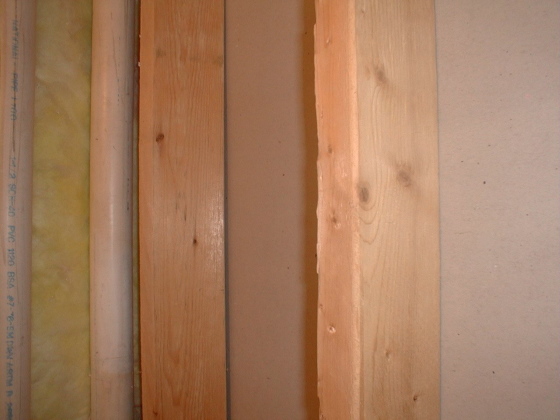Soundproofing Rooms Solves Noise Problem

Soundproofing Rooms
DEAR TIM: I have a problem with unwanted noise in my house. Not only can I hear sound from traffic and trains, but I hear people walking and talking on the different levels of my home. I am thinking of moving and don't want this problem in my new residence. Is there a way to minimize the noise problem in my existing home? If I do move, what can I do to make sure my new place is noise proof? Becky P., Clearwater, FL
DEAR BECKY: Noise problems are a common complaint from home owners, apartment dwellers and condominium owners. A vast majority of builders do not realize that common building practices do little to stop the transmission of noise within a structure. Anyone who has traveled and stayed in a fine resort or hotel knows that soundproofing a room is possible. The trouble is, to do it somewhat economically, it needs to be done as the structure is being built. Solving sound problems after the fact can often be an exercise in futility.
Sound is generated when an object vibrates. This can be a stereo speaker, your vocal cords, or a massive air horn on a train engine. The vibrating object creates sound waves in the air much like a stone creates ripple waves when thrown in a pond. When the sound waves traveling through the air hit our ears, they vibrate tiny bones that stimulate nerves in our brains. We interpret these as noise, music, conversation, etc. depending upon the source.
Soundproof rooms and structures are often built with solid masonry or special acoustically designed walls. When built correctly, these walls block air movement. The physical mass of solid walls is so much greater than a standard residential hollow wall built with 2x4's and drywall, that sound waves striking the wall can't easily cause the wall to vibrate. Typical residential wall and floor systems are simply drums. The drywall and plywood that span the wall studs and floor joists are simply skins stretched over a hollow void. When sound waves strike them, it passes through and vibrates the other side. Air leaks are common where drywall doesn't meet walls studs tightly.
I have solved sound and noise problems within existing homes to a certain degree. The first thing to do is to try to block sound waves that travel through the air. If you are trying to soundproof a bedroom, then you need to install a solid wood or solid core door. Install high quality weatherstripping around the door to block air from leaking around the door. Switching an interior door with a high quality exterior door that has weatherstripping is not a bad idea.
Use a special acoustical caulk that stays flexible for long periods of time to caulk around all doors and windows and where woodwork touches the floor. Imagine the room is going to be filled with water. Use the caulk to plug any possible place where water might leak from the room. Caulk around all electrical boxes as well.
Make sure that stairways and hallways have carpeting and padding if possible. This floor covering helps absorb, to a degree, reflected sound that is traveling from one room to another. Large hanging decorative wall fabrics will also help absorb sound. If you want to really get aggressive, consider adding an additional layer of drywall to walls and ceilings that are in between you and the source of the noise. This drywall increases wall and ceiling mass.
If you are going to build a new residence, it pays to hire an acoustical engineer. These professionals know how to design wall and floor systems that can make your new home as peaceful as possible. These engineers will work with all of the tradespeople to make sure that plumbing pipes, electrical boxes and heating and cooling systems are all installed correctly so that they do not create noise or act as pathways for noise to travel along from room to room.
If you are thinking about buying an existing residence, arrange to do a sound study. Ask to view the residence at different times of day. Early morning as people get ready to go to work might be an awkward time for a meeting, but it is an excellent time to listen for toilets, hair dryers, foot traffic, etc. Late afternoon and early evening are also excellent times as road traffic is heavy at this time. Simply bring a folding chair and sit and listen. You just might be surprised at what you hear!
Column 323
One Response to Soundproofing Rooms Solves Noise Problem